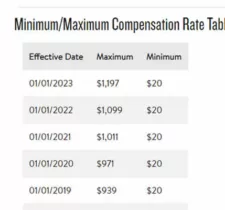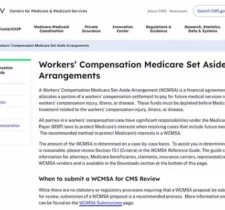Injury at Social or Recreational Event | Florida Workers’ Compensation
Employers, or groups of employees, sometimes organize events for coworkers to get exercise, increase camaraderie, i.e. sometimes called “team building”. But what happens when someone gets hurt at one of these events, is the injury covered under workers’ compensation? A worker sustaining Injury at Social or Recreational Event is a very fact specific inquiry, and coverage can vary based on several factors.
First, we start by looking at the statute:


(1) RECREATIONAL AND SOCIAL ACTIVITIES.—Recreational or social activities are not compensable unless such recreational or social activities are an expressly required incident of employment and produce a substantial direct benefit to the employer beyond improvement in employee health and morale that is common to all kinds of recreation and social life.
The two requirements for coverage of an Injury at Social or Recreational Event from the statute are as follows:
- The social or recreational event must be expressly required incident of employment; AND
- The engagement must produce a substantial direct benefit to the employer BEYOND the benefit of the activity itself.
These two statutory requirements can also be argued for or against in several different ways. It is helpful to use real world examples to see how the courts interpret the above requirements.
In the case of Karen Reynolds v. Anixter Power Solutions and Travelers Insurance Company, 287 So.3d 670 (Fla 1st DCA 2019), Ms. Reynolds was injured while bowling at an employer event during regular working hours. The Judge of Compensation Claims denied compensability, finding the event was a recreational activity not covered by workers’ compensation under the two prongs above.
The First DCA reversed the judge finding the injury was covered. The DCA noted “There is no dispute that the bowling event was during regular work hours, Anixter paid employees who attended the event, and Claimant was not told she could have remained at work or taken a vacation day rather than attend the event. No other alternative was offered by the employer.” This satisfies the first prong. “The purpose of the event was to improve morale and, as testified to by Claimant’s supervisor, to discuss ‘some of our goals for the next year.’” The First DCA held this fact supported the second prong of a substantial and direct benefit to the employer.
In a more recent case decided by a Judge of Compensation Claims in December 2022, illustrates the inverse. In Angela Kraft v. GE Aviation Systems, 22-013026RLY, Ms. Kraft was injured while employees were making a memorial garden to coworkers who passed away from COVID 19. As she was pulling a vine out of a tree, she slipped and injured her knee. The employer in this case provided eight hours of paid time for employees to engage in a volunteer opportunity of their choice. There were many different opportunities available at various times. In this situation, the garden, while important to provide a place for employees to grieve their lost coworkers/loved ones, did not provide any direct benefit to the employer, i.e. there was no business discussed or commercial interest intertwined with the garden. Participation was completely voluntary and there were no adverse consequences if an employee chose to forego the garden activity. In fact, the email informing employees of the garden went to approximately 270 employees. Approximately 15-20 chose to engage in the memorial garden event. These facts, i.e. no benefit to the employer and voluntary participation with not a hint of adverse consequences if an employee did not engage in the event, led the Judge to find there was no coverage because the facts failed both prongs. It should be noted that as of the writing of this blog, Ms. Kraft has appealed the 12/9/2022 denial of her claim.
Whether an Injury at Social or Recreational Event is covered can be complex, as our employment activities are complex, and therefore whether these injuries are covered can vary greatly by the particular facts and circumstances surrounding the event and the purpose of the event.








